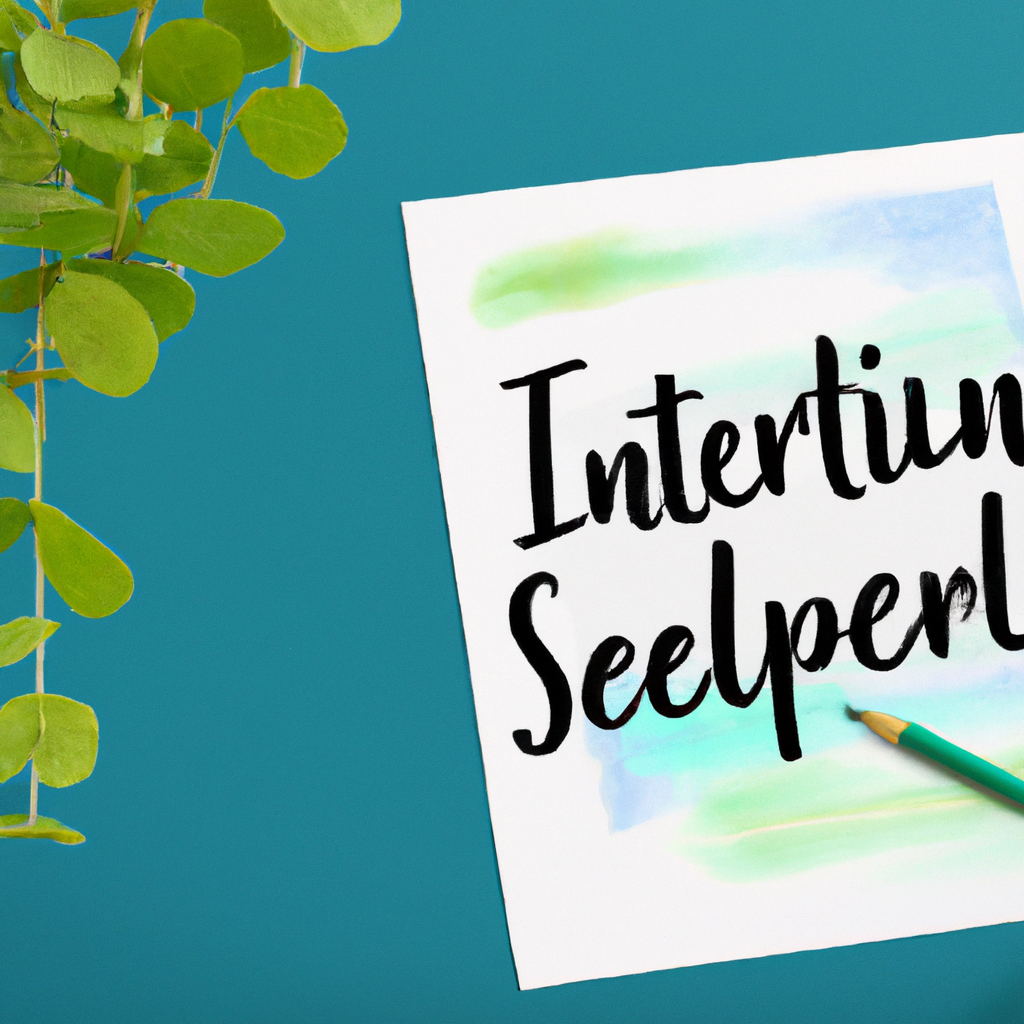Love is not just about talking and being heard – it’s also about actively listening. Listening is understanding, and understanding is essential to a healthy relationship. Yet, it can be hard to make an effort to really pay attention to what our partner is saying. But if we take the time to listen, the power of listening can be a beautiful way to strengthen our connections with one another. This article will explore why listening is so important in love and how it can make a big difference in our relationships.
1. Exploring the Inner Sanctum of Listening
It’s no surprise that music can have a transformative power – a truly special feeling that washes over us and takes us to a new world. Yet, for many of us, an even deeper experience awaits beyond merely hearing music. To take full advantage of this opportunity requires persistence, discipline and most importantly an understanding of the inner sanctum of listening.
Open Your Mind
The first step when starting to explore the inner sanctum of listening is to open up our minds. Give yourself permission to explore any unfamiliar territory within the music. Listen to each new sound, unraveling the various components, without preconceiving what it may suggest. This mindful approach to listening requires practising uninterrupted attention in order to really hear all the detail and hidden nuances that these sounds can bring.
Go Deep
When it comes to , going deep can provide far greater rewards than reckless exploration. Making the effort to really hear and visualise each musical element, noting how they join and interact together to craft the song’s energy, can bring a greater level of satisfaction beyond merely hearing any surface level of familiarity.
To truly go deep, it’s key to remember that music is universal and made of living energy. Connect to it on a personal level, allowing its power and emotions to resonate within your own spirit.
Breakdown and analyse what you’re hearing by utilising such techniques as ear training, note recognition or performance analysis. When it comes to the inner sanctum of listening, understanding the bigger picture can make a huge difference:
- Train your ear to hear the micro-details that make up a track and its components.
- Differentiate between specific elements such as bass, percussion and melody.
- Identify the structure and progression of a track.
Develop Your Own Knowledge
The inner sanctum of listening can help to develop your own knowledge and understanding of music. Once you’re able to harness the power of this experience, you’re no longer passively listening; instead, you’ll have trained your inner ear to become a tool to identify and analyse music beyond what your eyes and ears can naturally detect.

2. Appreciating the Nuances of Attentive Listening
Listening attentively isn’t just about hearing the words. It’s about appreciating the nuances of the conversation. It’s about truly engaging with the speaker and understanding the message they are conveying. The following are some of the key elements of effective attentive listening:
- Focus: Remaining focused throughout a conversation requires effort. It means steering away from distractions and giving the speaker your undivided attention.
- Body Language: When we listen attentively, our body language speaks louder than words. Nodding, smiling, and maintaining eye contact lets the speaker know we are listening and encourages them to continue speaking.
- Listening Ears: The most basic takeaway is to give the speaker our listening ears. Remain impartial and nonjudgmental in what you hear and let the speaker know that their opinion matters.
Tools such as mindful meditation can also permit us to listen with more presence of mind. Taking the time to observe, analyze and interpret the meaning of the conversation helps us to engage deeply and understand the speaker better.
Free-thinking encourages us to be open-minded and think outside of the box when trying to comprehend the message of the conversation. Not to mention, allowing for the occasional silence for the speaker or yourself can help create understanding in this form of attentive listening.
Understanding the nuances of attentive listening can be a difficult skill to master, but it’s essential for good communication. If everyone can learn the art of attentive listening, conversations can become more meaningful and engaging.
3. Navigating Listening’s Complexities
Listening is a necessary skill for all aspects of life – professional, social, educational and personal. It’s easy to assume that in order to be a good listener, people simply need to actively pay attention to what is being spoken. However, can often be more complex. Here are three key things to remember when developing your listening skills:
- Don’t judge – Listening is not just about understanding the words which are spoken, but also understanding the intentions behind them. Developing the ability to empathize with the speaker and withhold judgment are essential skills.
- Focus on the speaker – To understand the message being communicated, it’s important to approach each conversation from an unbiased perspective. Avoid focusing on what response you will give and instead focus on what the speaker is saying.
- Look at the context – Every communication revolves around a context, usually the environment of the conversation. Effective listening involves being aware of the environment and using that information to understand the conversation better.
Understanding and being aware of these complexities can help a person become a better listener and improve communication with others. It’s important to understand that listening involves using more than just one’s ears; it involves understanding the conversation’s environment, context and the speaker’s intentions. Through doing this, people can ensure that their communication is more effective.
Simply focussing on the words being spoken isn’t enough to be a good listener; to truly understand the conversation, it’s necessary to pay attention to the real message being communicated. This means being conscious of non-verbal cues and contextual information. In order to Navigate listening’s complexities, it’s important to maintain an open and nonjudgmental attitude.
It’s also important to look for deeper understanding and be open to learning something new during a conversation. Listening with an open mind will help develop better communication and understanding between two people. By maintaining these practices, people can navigate the complexities of listening and develop better conversations.
4. Understanding the Power of Listening in Love
We talk a lot about how to show love, how to express it, and how to understand it when others give it to us. However, one of the most important aspects of expressing love and being able to receive it is learning how to listen. Here are some tips for :
- Be Present. Make sure that you are paying attention to your loved one, that you are actively listening to what they’re saying, and that you are giving them your full attention. Unplug whenever you’re together, and really focus on them.
- Listen for Meaning. This isn’t just about hearing their words—it’s about understanding them on a deeper level. Listen for the feelings behind the words, for the silenced truths, and for the requests they’re making. When listening with this kind of intent, you will have heightened understanding and empathy for them.
- Validate. When your loved one is saying something meaningful, validate what they’re saying by showing understanding. This can be as simple as saying, “I understand what you mean” or “I get it.” This helps them to feel heard and understood.
- Ask Questions. If you are not sure about something, make sure to ask follow-up questions. This keeps the conversation open, and gives you a chance to really go deep and understand what they’re saying. Plus, it also makes them feel like you care about them and what they’re saying.
Listening is a powerful way to express love. It creates connection, understanding, and empathy—all important aspects of a healthy and lasting relationship. Instead of talking all the time, make sure to take the time to really listen to your loved ones. It will make all the difference in the world.
Listening – it is the superpower you have, that can make all the difference in matters of the heart. Take it in, share it out, and watch your relationships – no matter the reason – blossom beyond your wildest dreams. Because, when it comes to love, listening opens hearts, minds and possibilities.
